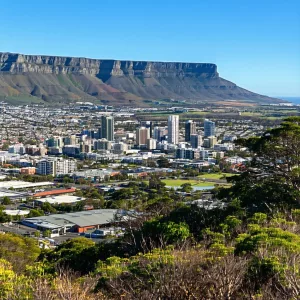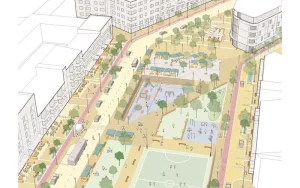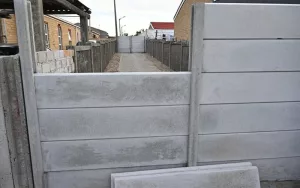Cape Town’s Vision 2050 is a bold plan to build a fairer, greener, and more connected city. The city aims for most people to use public transport, rely on renewable energy, and have better water sources by midcentury. It also plans to create thousands of affordable homes each year to help bridge social divides. This vision invites everyone in the community to join hands and shape a future where Cape Town’s history and beauty inspire a brighter, united tomorrow.
Cape Town is facing a big housing challenge as more digital nomads flock to its beautiful shores. These remote workers are driving up rental prices and making it tough for locals to find affordable homes. With many properties turning into shortterm rentals, city leaders are pushing for new rules to protect residents and ensure a fair housing market. The situation is prompting important discussions about how to balance the needs of visitors and the local community, aiming for solutions that work for everyone.
In Cape Town, residents are coming together to shape their city’s future through important discussions about urban planning. As the deadline for public input on the Municipal Planning Bylaw approaches, community members are eager to share their ideas and opinions. Meetings and accessible information empower people to engage in this process, helping to create a fairer and more vibrant city. With new plans for affordable housing and a focus on inclusivity, Cape Town aims to build a future that reflects the dreams and needs of all its citizens.
Cape Town is on a journey to make its city better by listening to its people. They are changing the rules for city planning to include everyone’s opinions, especially about important issues like affordable housing. The city is hosting meetings where residents can ask questions and share ideas, ensuring that the voices of the community are heard. This approach is all about working together to create a vibrant city that keeps its charm while growing and adapting to the needs of its diverse neighborhoods. As Cape Town moves forward, it aims to build a city that truly reflects the dreams and desires of its residents.
Cape Town is inviting its residents to take part in shaping the city’s future through urban planning. There are public meetings on October 8 and 10, 2024, where everyone can share their thoughts and ideas. For three months, until October 25, 2024, people can also submit their feedback on important changes to the Municipal Planning Bylaw. This is a chance for the community to come together and influence how their neighborhoods grow and change, ensuring that Cape Town remains a beautiful and vibrant place for all.
Cape Town is gearing up for an exciting change with its Local Spatial Development Framework (LSDF) for the Central Business District (CBD). This plan aims to create a lively, sustainable area where people can live, work, and play, all while respecting the city’s rich history. The LSDF encourages community involvement, inviting residents to share their thoughts and ideas, especially during a special event on October 10th, 2024. The focus is on making the CBD more walkable, accessible, and full of diverse spaces, ensuring that everyone can enjoy the cultural and economic opportunities the city has to offer. With input from its people, Cape Town is ready to build a bright future that honors its past.
The Macassar Mega Housing Project in Cape Town is a big step towards creating homes for families, with plans for 2,469 houses. On September 26, 2024, the City celebrated by handing over keys to the first 32 homes, marking the start of a brighter future for many. Despite facing tough challenges like protests and threats, the project remains strong, thanks to the hard work of the community and city teams. These new homes not only provide shelter but also symbolize hope and a shared dream, promising a thriving community where families can grow and create lasting memories.
Cape Town is excited about its future, especially in the Central Business District (CBD). The city has a new plan called the Local Spatial Development Framework (LSDF) that aims to make the CBD more friendly and lively for everyone. With input from residents, the plan focuses on better transportation, keeping cultural treasures, and creating affordable housing. By working together, Cape Town hopes to build a vibrant place where all people can enjoy life and thrive.
Cape Town’s Initiative for Esteemed Spaces is a policy that aims to enhance the aesthetic appeal and quality of public places in the city. The humancentered urban designs transform spaces into purposeful, relevant, and significant places that encourage community development. The policy draws inspiration from principles such as the greater public good, holistic approach, identity, context, and placemaking, among others, to create visually captivating, environmentally friendly, economically sound, and socially fair environments in the city.
The debate over whether to convert a baseball field in Gugulethu, South Africa into a hospital has sparked a resistance movement from locals, including sports teams and healthcare advocates. The Gugulethu Sports and Development Trust argues that the decision was flawed and lacks public participation processes, while others stress the urgent need for healthcare in the region. The ongoing struggle highlights the dilemma of balancing community spaces and increasing demands for essential services.
Water Supply Maintenance Schedule: A Comprehensive Overview of Urban Planning and Resident Readiness
Cape Town’s Water and Sanitation Directorate has announced a prescheduled maintenance routine, including zeropressure tests and conditional assessments, to ensure the seamless operation of the city’s water supply network. The maintenance schedule will cause temporary disruptions in the water supply across various locations, but the ultimate goal is to tackle unaccounted water issues and safeguard future continuity. The city urges residents to be wellinformed and prepared, storing sufficient water beforehand and staying informed about maintenance work through official channels.
Mitchells Plain, a suburb in Cape Town, is closing pedestrian and cycle lanes that have become hotspots for criminal activity in an initiative to combat crime. Since 2013, 57 lanes have been effectively shut down, with an additional 15 in the process of closure. Proposals for lane closures are reviewed by the local Subcouncil, followed by a public participation process, department assessments, and funding allocation. Mayor Geordin HillLewis leads the funding efforts, with R600,000 allocated from July 2024. The initiative demonstrates communityled urban planning to transform public spaces into safer environments.












